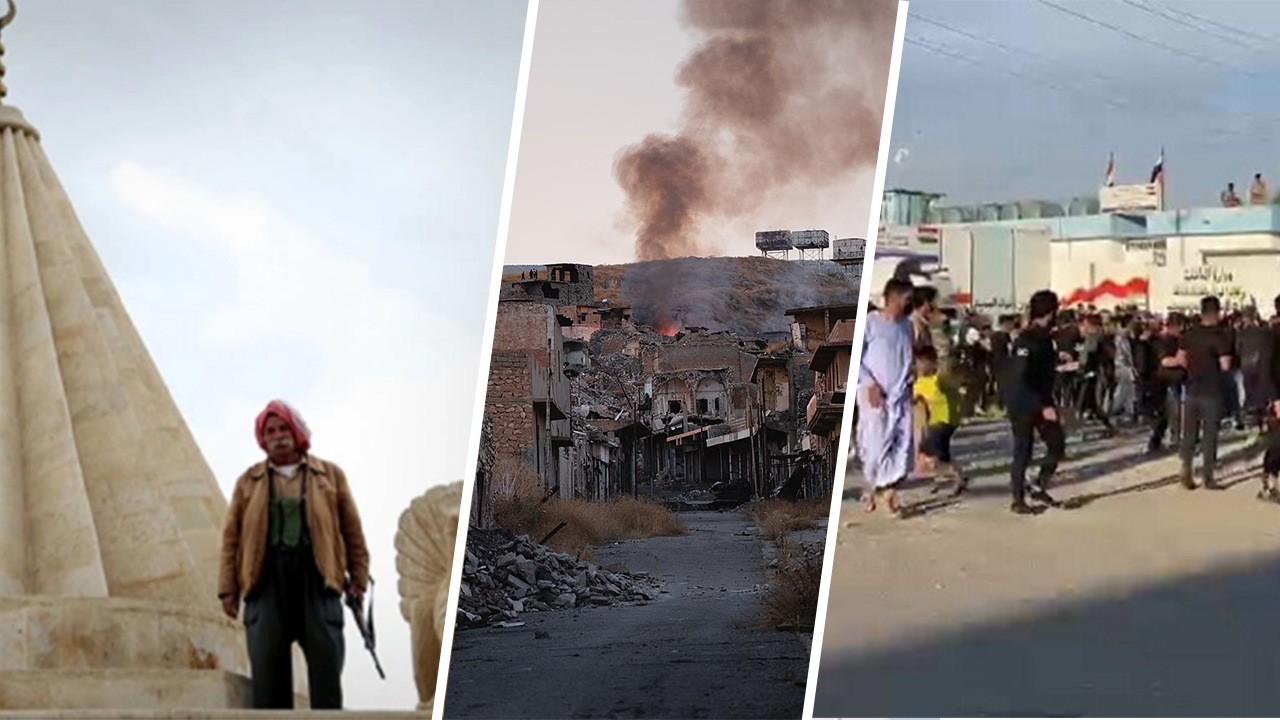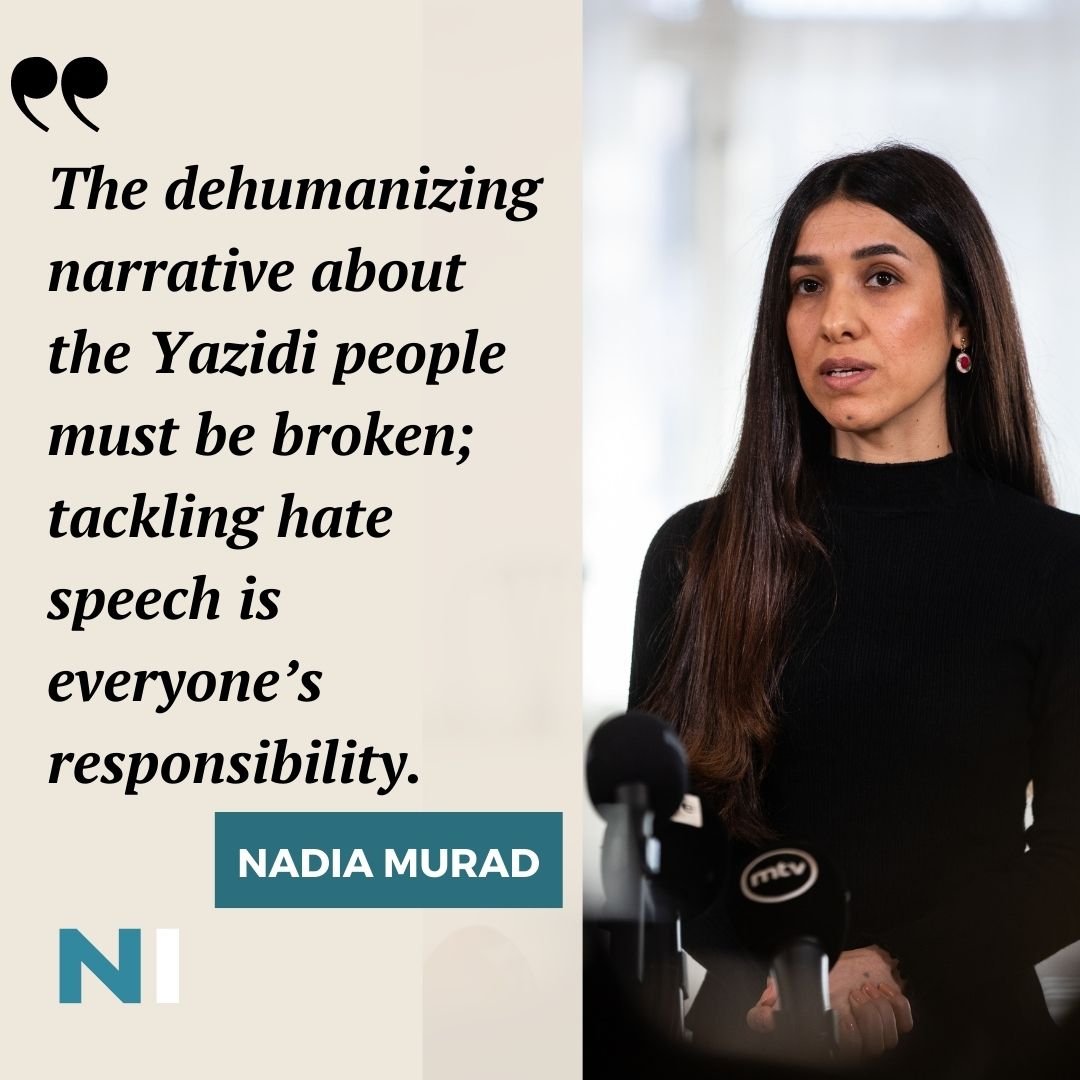The Iraqi Government has controversially planned for the return of 500 Sunni Muslim families to Sinjar, in northeastern Iraq. Sinjar was the site of the ISIS genocide on Yezidis in 2014, where 2,855 were killed, more than 6,417 raped and enslaved, and an estimated 350-360,000 displaced. Those events have justifiably left the Yezidi community concerned now for their safety.
When the Iraqi government announced their plan, the Yezidis in Sinjar refused the return of specifically those Sunni families who had joined ISIS in 2014 and then attacked Yezidis. They did not refuse the return of other families who had not been part of the violence against Yezidis. The Yezidi community also asked the Iraqi government to ensure that all Sunni Muslim families returning to Sinjar pass a security check before returning them to Sinjar from Jada’a camp, where ISIS families now reside.
The government ignored the request of the Yezidi community and returned 25 Sunni families to Sinjar on April 27, 2023 under the protection of the Iraqi National Security Forces. Only the men of those families returned, without women and children. They all went to the Rahman Mosque, a Sunni mosque in the center of Sinjar, and they were heard reciting ISIS phrases inside the mosque such as “Allah Akbar, Allah Akbar, the truth has triumphed and falsehood has perished.” This mosque had embraced ISIS from the very first moments of ISIS control over Sinjar in 2014, and ISIS used it as their hub during their control of the city. Despite all that they experienced, Yezidis returned to Sinjar beginning in 2017, but never tried to harm this mosque.
When the Sunnis arrived in Sinjar a few weeks ago, some Yezidis became angry at the return of those who still support ISIS ideology. A Yezidi woman who had been kidnapped by ISIS identified two of the returnees as having been with ISIS when she was held captive. The name of one of them is Ayad, and she reported that ISIS had called him “Haji Ayad.”
Some Yezidi youth threw stones at the mosque, where the Sunni returnees were worshiping. It seems, however, that a third party took it much further, seeking to create strife between Yezidis and Sunni Muslims. Someone set a fire in front of the mosque and filmed it. This led to a campaign across Iraq against Yezidis, and particularly in Kurdistan. Hate speech flooded social media. Many Muslim/Kurdish imams across Kurdistan called for people to attack the Yezidi refugee camps in Kurdistan.
According to the Al-Masarat Foundation, the threats and hate posts on social media reached as many as 344,000 in a single day, reaching a total of 4 million during the crisis. Here are some of those messages.
“We will take a flag and write “Allahu Akbar” on it and go around Zakho and its outskirts and anyone in Zakho who has jealousy and shame will join us, we will gather and go there and he will go to the displaced persons camp to attack him.”
“I swear to God, I am the first person in Zakho who is on his way to join…” (i.e., joining to attack Yezidis in Zakho/Dohul Yezidi refugee camps)
In another message thread:
Let's be ready tomorrow, and whoever comes, write 1 in the comment space.
We're ready with my gun loaded with seven bullets already.
(Then comes the sound of their laughter, as they continue talking about their plan):
“On my honor, with bullets and grenades, I am a commando and ready to attack."
“Do you have a BKC weapon to bring me?”
“Not BKC but I have a machine gun.”
“Lord of the worlds, I will go to the roof of the building and shoot the camp!”
“The BKC doesn't arrive, it doesn't work like that... Tell me where do you live?”
“I live near the Cha Mishko camp, the camp is only two minutes away from me, if I do not direct the BKC towards the camp, I am not my father's son.”
“I have seven grenades that I swear to God I will detonate on them ’on the displaced in the camp’ and on me.”
Members of the discussion groups indicated that each region in Dohuk, Erbil and Sulaymaniyah has "groups" in which they discuss these issues and plan their attacks on Yezidis in their areas.
In another comment, a Kurdish man said “Saida means the mullah, the 76 genocide is very close” (referring to a genocide against Yezidis).
In all these conversations and discussions, commenters do not even use Yezidi names, but call them the “devil worshipers,” dehumanizing Yezidis in their posts.
All such hate speech has created mistrust between Kurds and Yezidis, even though Yezidis had considered Kurdistan their safe home after the last genocide. According to a videographic by Ezidi 24, “Yezidis are even scared to go shopping or go to hospital in Kurdistan because they are afraid that they might be targeted by Kurdish extremists.”
Some foreign governments and organizations, such as the French government and Human Rights Watch, have finally condemned the hate speech and attacks on the Yezidi community by Kurds. However, the Kurdistan Regional Government (KRG) and Iraq Government remain silent despite all the violence by Kurds, and they have not made a single statement to condemn it publicly. It is obvious to many Yezidis that even the KRG and Baghdad have little control over these extremists in Kurdistan, or for other reasons are reluctant to speak out or take action against it.
The Yezidis do not feel safe in the refugee camps, nor in Sinjar. They do not know where to go right now. Some have decided to return to Sinjar, despite all the security issues and conflicts there, as they find it safer than in Kurdistan. Many others are emigrating to Europe.
In the last few days, many Yezidis from the refugee camps have reported that Kurds are mistreating them in public places and in the workforce. Some have also reported that Kurds spit on them when seeing them in public places.
The verbal attacks and threats of violence that Yezidis have experienced in the last 15 days in Iraq require that the international community either protect them in Iraq, or help them to leave the country.
Hashtag: #our_call_to_the_international_community_help_us_stay_or_help_us_leave on all the social media platforms, and organized protests in Germany calling for protection.
So far, about 18 parliaments around the world have recognized as genocide what Yezidis suffered at the hands of ISIS in 2014. But none have taken serious steps to protect the Yezidis. Merely recognizing the Yezidi genocide is nothing more than symbolic. Protection for the Yezidi people, and transitional justice, are needed to make a meaningful difference to their lives.
The Yezidi community is urging international diplomats and aid organizations to
- Protect the Yezidis to live peacefully in Iraq.This means rebuilding their areas, providing services, and implementing transitional justice.
- If the international community is not prepared to offer this degree of support and protection, support the Yezidis in their migration out of Iraq. Help them to have a peaceful life elsewhere, where they can be protected from the threat of another genocide.




